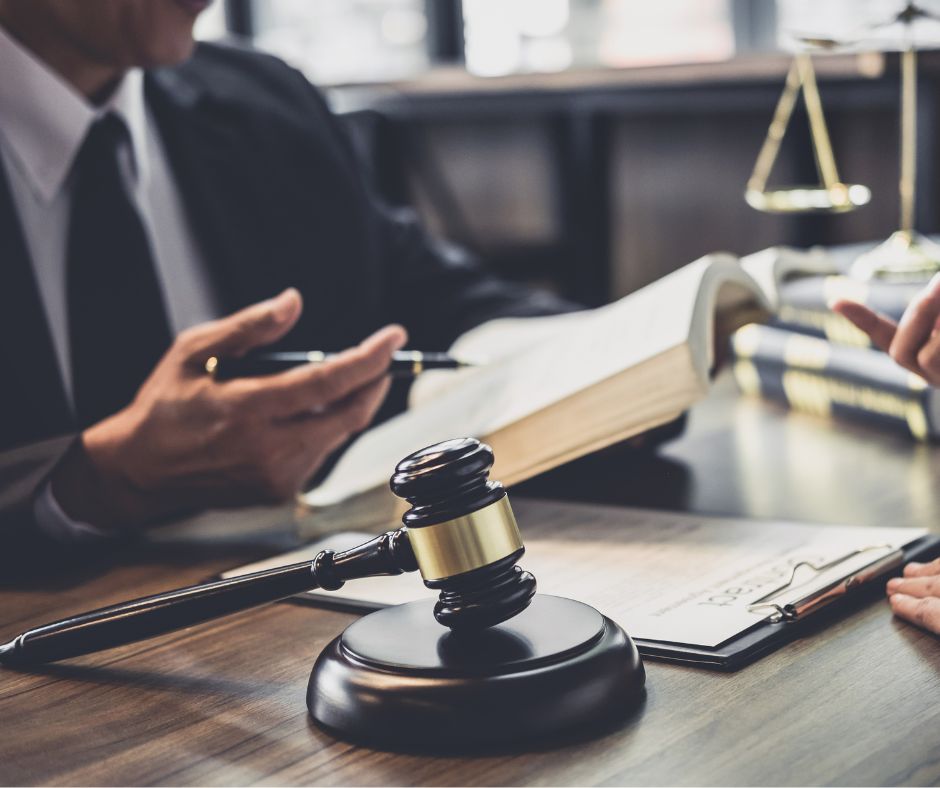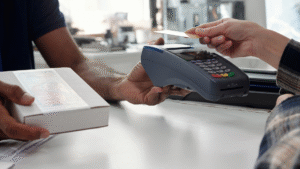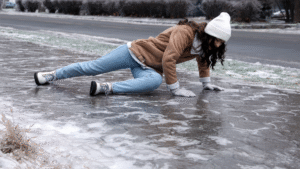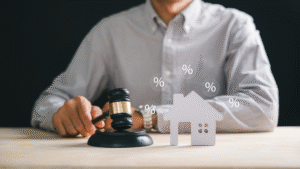
Accidents can take you by surprise. Whether you slip on a wet floor at the store or find yourself in a car accident because another driver wasn’t paying attention, the emotional and physical resultant pain can be frustrating. And when someone else’s carelessness leads to your injury, you’re left wondering what your next steps should be.
Today, we will discuss premises liability vs. personal liability. These two things are interrelated, as premises liability cases are a type or subgroup of personal injury cases. However, understanding the differences between them can help you determine where to start when seeking compensation and making sure you’re taken care of.
Premises Liability Cases in Washington State
Let’s start with premises liability. This term might sound legalistic, but at its core, it’s about holding property owners responsible for maintaining safe conditions. If you’re injured due to a hazardous condition on someone else’s property, that’s where premises liability applies. In Washington, property owners must keep their spaces—whether a business, home, or rental property—reasonably safe for visitors. If they neglect this responsibility and someone is injured, a premises liability claim can be filed.
Common hazards that often lead to a premises liability claim include:
- Wet or slippery floors,
- Uneven sidewalks or pavement,
- Poor lighting in stairways or parking lots,
- Falling objects, and
- Unsecured swimming pools.
If these hazards aren’t addressed and you get injured, you could hold the property owner responsible. The key is whether the owner knew—or should have known—about the danger and failed to fix the condition or warn visitors about it.
When Is a Property Owner Liable for Injuries?
Not every injury to someone’s property automatically makes the owner responsible. To prove liability in a premises liability case, you must show:
- The owner knew or should have known about the hazard,
- The owner failed to address it or provide a warning,
- The hazard directly caused your injury, and
- You suffered damages, such as medical bills or lost wages.
Let’s look at some examples of incidents where premises liability would likely attach:
- A store doesn’t clean up a spill, and a customer slips, breaking their wrist;
- A landlord ignores a broken railing, and a tenant falls down the stairs; or
- A shopping mall neglects a damaged escalator, injuring a shopper.
In each case, the property owner knew or should have known about a hazard but failed to act, leading to someone’s injury. However, there are exceptions. For instance, if stairs suddenly collapsed due to a hidden structural issue the owner couldn’t reasonably know about, they might not be held liable.
Also, you must have been legally on the property during the accident. If you were trespassing, the property owner’s responsibility for your safety is much lower.
Types of Premises Liability Claims
Do you think premises liability is just about slipping on a wet floor? Think again. It covers a much wider range of situations where someone is injured because a property owner didn’t take proper care of their space.
Premises liability can also involve:
- Negligent security. This applies if you’re injured because a property owner fails to provide adequate security—like sufficient lighting in a parking lot or security guards in a high-crime area. In such a case, you could likely hold the owner liable.
- Swimming pool accidents. Pool owners need to take steps to prevent accidents, like having a secure fence and clearly marked depths. If they don’t secure the area and someone gets injured, the injured party could hold them liable.
- Exposure to hazardous substances. Were you exposed to toxic chemicals, mold, or asbestos on someone else’s property and suffered health problems as a result? This could also fall under premises liability.
Of course, slip and fall accidents are still a common type of premises liability claim. These often involve wet or slippery floors, icy sidewalks, or uneven surfaces. Trip and fall accidents, where someone trips over things like loose rugs, clutter in walkways, or broken pavement, also fall under this category.
Personal Liability Cases in Washington State
On the other hand, injury cases based on personal liability focus on an individual’s direct actions rather than the condition of their property. As we said, premises liability is a subgroup of personal injury cases. However, other types of personal injury cases arise when someone’s negligence or intentional actions directly cause harm to another person.
Common examples of other types of personal liability cases include:
- Car accidents. Suppose a driver is texting, speeding, or driving under the influence and causes a crash that injures you. Their actions are the direct cause of your harm, and you can hold them accountable.
- Medical malpractice. This occurs when a doctor misdiagnoses your condition, a surgeon makes a mistake during an operation, or any healthcare provider makes a mistake or takes action that other competent practitioners would not have taken. If such actions cause further health problems, you can hold them accountable.
- Assault and battery. When someone intentionally harms you in a physical altercation, the focus is on their actions that led to your injuries.
- Dog bites. A dog owner could be liable if their dog bites you, especially if they weren’t properly controlling their pet.
In Washington, many personal injury claims fall under this category of personal liability. The key takeaway is that the responsibility for your injuries lies with the person whose actions caused the harm, not with the property’s condition.
What Is the Difference Between Personal Liability vs. Premises Liability?
Let’s recap. We’ve talked about personal liability vs. premises liability, but how do you know which applies to your situation?
It all comes down to the source of the injury. Was it dangerous conditions on someone’s property, like a broken stair or a hidden pothole? That’s premises liability. Or was it someone’s direct actions that caused your injury, like a careless driver or a negligent doctor? That’s a different category of personal injury and liability.
Here’s a quick way to think about premises liability vs personal liability:
- Premises liability. If you slip on a wet floor in a store and break your arm, the store owner may be liable because they didn’t clean up the spill.
- Personal liability. You’re driving home from work, and someone runs a red light, causing an accident that gives you whiplash. The other driver is likely liable because their actions directly caused your injury.
See the difference? In one case, it’s the condition of the property that caused the harm. On the other, it’s the actions of a person.
What Damages Can You Recover in a Premises or Personal Liability Case?
Accidents can result in more than just physical harm. You may face growing medical bills, lost income, and challenges in daily life. Whether your case falls under premises or personal liability, you may be entitled to compensation for medical expenses, lost wages, and pain and suffering.
Every case is unique, so the amount of compensation you could receive will depend on your specific circumstances. In Washington, many claims start with an insurance claim, but insurance companies don’t always offer a fair settlement. If that happens, filing a lawsuit may be your best option to recover damages for your injury.
Talk to a Personal Injury Lawyer Today
If you’ve been injured in Washington due to someone else’s carelessness, you don’t have to figure it out on your own. The attorneys at Brett McCandlis Brown & Conner are ready to assist you.
With over 40 years of experience working with Washington residents, we understand what you’re going through. Contact us today for a free consultation. We’re here to help you understand your options and get the support you need to move forward.


